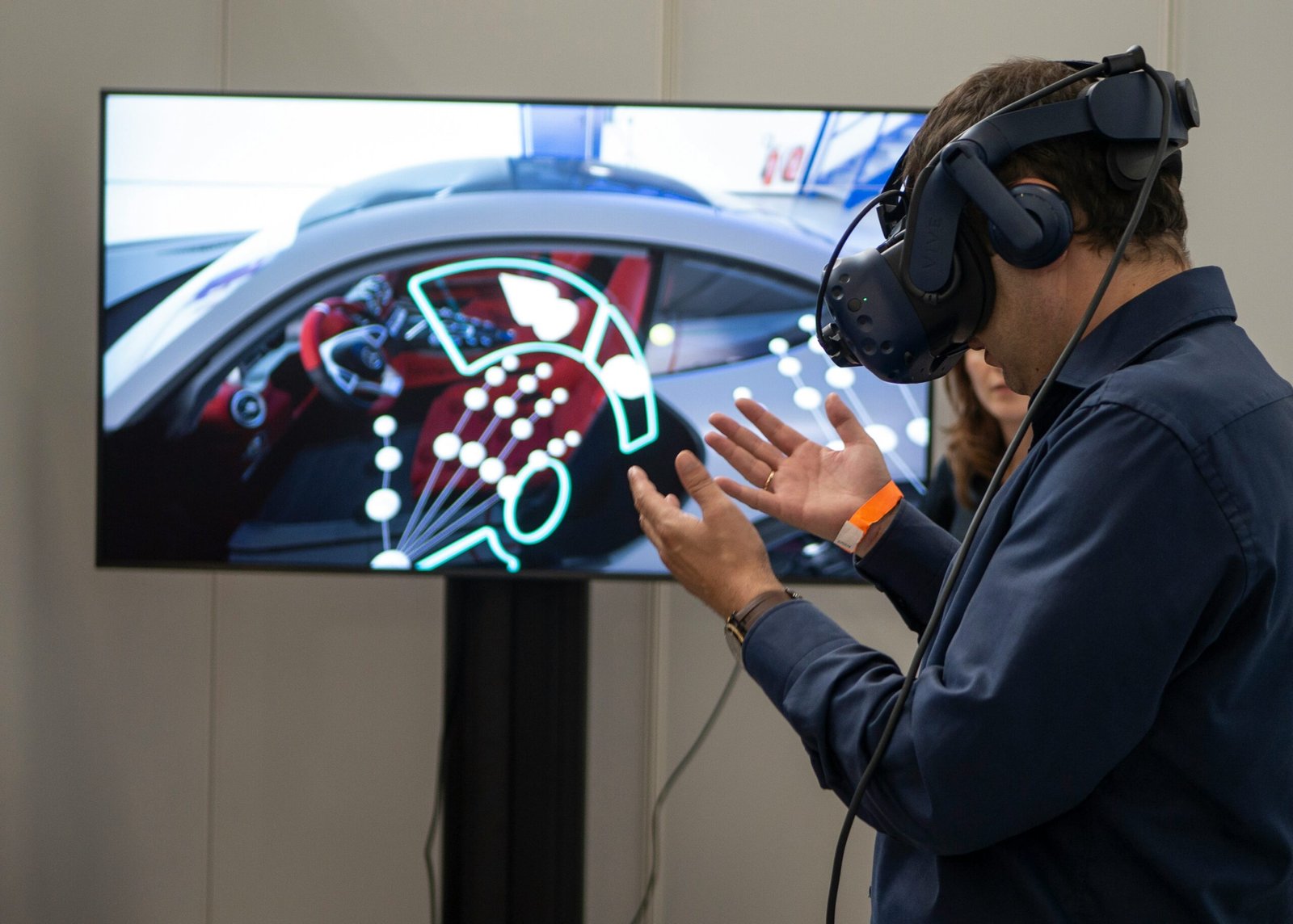Introduction to the Virtual Economy
The virtual economy represents a transformative shift in our understanding of economic systems, intertwining the digital realm with traditional notions of commerce and value. At its core, the virtual economy encompasses economic activities that occur in online environments, often facilitated by blockchain technology, digital currencies, and virtual marketplaces. This landscape is not merely an extension of the physical economy; it embodies unique characteristics that challenge and reshape the conventional economic theories we have long adhered to.
As we delve into the intricacies of this phenomenon, it becomes evident that the virtual economy is not just a passing trend but a reflection of broader societal changes. With the rise of social media platforms, virtual goods, and digital services, consumers are beginning to navigate spaces where physical and digital interactions coalesce. This paradigm shift raises essential questions about ownership, value, and identity in a world where assets can exist purely in digital form.
The implications of the virtual economy extend beyond commerce, intersecting with philosophy, ethics, and even psychology. The very notion of what constitutes “value” is being redefined; digital currencies such as Bitcoin are challenging the foundational principles of money itself. As we explore these themes, we must consider how the virtual economy influences our perceptions of reality and interconnectedness. This evolving landscape opens avenues for philosophical inquiry, prompting us to reflect on our roles as participants in a systemic transformation.
In this blog post, we will examine the facets of the virtual economy and its ramifications for modern science and philosophy. By analyzing its rapid growth and the shifting dynamics of value creation, we aim to uncover the profound implications it holds for our future, as both individuals and members of a global community. The conceptual canvas of the virtual economy invites us to rethink our economic interactions in an increasingly digital world, thereby enriching our understanding of reality itself.
Defining the Virtual Economy
The virtual economy can be defined as an ecosystem that embraces digital currencies, virtual goods, and online marketplaces, functioning within an environment that is distinct yet interconnected with the traditional economy. The rise of the internet and technology has facilitated the emergence of this economy, which operates on the principles of supply and demand, similar to conventional markets.
One of the most crucial components of the virtual economy is digital currencies, such as Bitcoin, Ethereum, and other cryptocurrencies. These currencies enable transactions without the need for physical currency and are often decentralized, relying on blockchain technology. The anonymity and security associated with digital currencies have contributed to their widespread acceptance and usage in both online and offline settings, affecting the dynamics of monetary exchange in the broader economic landscape.
Virtual goods, representing intangible products such as digital assets, in-game items, or services, are another pillar of the virtual economy. Gamers frequently engage in the buying, selling, and trading of these virtual items, which can hold real-world value. The popularity of massively multiplayer online games (MMOs) and platforms such as Second Life exemplifies how users create, own, and exchange virtual goods, further blurring the lines between digital and physical assets.
Online marketplaces are essential for facilitating transactions within the virtual economy. These platforms, whether for trading cryptocurrencies, purchasing virtual goods, or offering services, provide a space for buyers and sellers to interact efficiently. Websites such as eBay, Etsy, and specialized blockchain forums demonstrate the potential for economic activity that transcends geographical boundaries, allowing for a more diverse and inclusive marketplace.
In addressing the implications of the virtual economy, it becomes evident that its influence extends beyond mere digital transactions; it reshapes our understanding of value and ownership in society today. The interactivity and fluidity of virtual economic elements encourage both innovation and adaptation across real-world economies, making it essential to explore their significance further.
The Intersection of Science and the Virtual Economy
The virtual economy, characterized by digital transactions and virtual goods, operates within a framework influenced by various scientific principles. One important area is game theory, a branch of mathematics that models strategic interactions among rational decision-makers. In the context of the virtual economy, game theory provides insights into how players make decisions that affect their monetary gains, often in highly competitive environments such as online gaming or cryptocurrency trading. These frameworks help to predict user behavior and the outcomes based on different strategies, illustrating the multifaceted nature of economic interactions in virtual spaces.
Another valuable concept is economic modeling, which involves the construction of theoretical frameworks that represent real-world economic processes. In the case of the virtual economy, models can simulate how changes in consumer preferences, supply chain dynamics, or digital market environments impact the overall economy. For instance, the introduction of new blockchain technologies has revolutionized how assets are created and traded, necessitating innovative modeling techniques to understand their ramifications. Researchers deploy various scientific methods to optimize these models, allowing for better forecasts in fluctuating digital markets.
Real-world examples abound that bridge these scientific theories to enhance our understanding of the virtual economy. Take, for instance, multiplayer online games where players engage in market transactions using virtual currencies. Here, economic principles apply in real-time scenarios, resulting in player behavior that mirrors that of traditional markets. Furthermore, platforms like Second Life or Decentraland utilize these concepts to create thriving virtual ecosystems where economic activities closely resemble physical-world economies. These examples demonstrate how the intersection of science and the virtual economy fosters a rich exchange of ideas and practices, ultimately deepening our comprehension of both domains.
Philosophical Perspectives on Virtual Economies
The emergence of virtual economies invites critical philosophical inquiry into the nature of value, ownership, and existence within digital realms. As interactions and transactions become increasingly digitized, the traditional understanding of economic principles is challenged, leading to new perspectives on what constitutes value in these artificial environments. Unlike physical goods, virtual commodities, whether they are cryptocurrencies, digital artworks, or in-game assets, prompt us to reconsider the foundations of ownership. For instance, the concept of digital scarcity—artificially created by algorithms—demands that we ask how scarcity itself can influence perceived value in virtual spaces.
Ownership in these contexts transcends physical possessions, often fostering a sense of community and identity among participants. Philosophers like John Locke argued for the intrinsic link between ownership and labor, where individuals can claim rights over the products of their efforts. In virtual economies, this notion becomes more complex as the labor involved may include creativity, coding, or community participation rather than traditional economic activity. The shift raises questions about intellectual property, authorship, and the ethics of digital ownership. Additionally, the impact of platforms that centralize control over these economies further complicates the narrative of ownership, leading to discussions regarding the nature of authority and governance in virtual spaces.
Moreover, virtual economies not only shape personal identity but also reflect broader societal norms and values. The ways individuals engage with these economies, whether through participation in online marketplaces or social platforms, can highlight cultural attitudes toward wealth, exchange, and community-building. These interactions often serve as modern metaphors for existential questions about human connection and societal engagement. When examining the implications of virtual economies, we must strive to understand their potential influence on our perception of reality, encouraging a continuous dialogue that encompasses the philosophical dimensions of our increasingly virtual lives.
Real-World Examples of the Virtual Economy
In recent years, various platforms have emerged that illustrate the manifold dimensions of the virtual economy. These platforms engage in digital transactions akin to those seen in traditional markets but operate entirely within a digital framework. One prominent example is the MMORPG (Massively Multiplayer Online Role-Playing Game) industry, which has created a unique economy revolving around in-game currencies and virtual goods. Players often participate in microtransactions to acquire digital items that hold real value within their gaming communities. The exchange rates between these in-game currencies and real-world money further exemplify the interplay between virtual and traditional economies.
Another significant case is that of virtual real estate. Platforms like Decentraland and Second Life allow users to buy, sell, and develop virtual land, which can appreciate similarly to physical real estate. Users create value through their investments, enhancing the platform’s offerings with in-game architecture and services, attracting more participants. This phenomenon showcases the growing relevance of virtual assets and the financial strategies individuals employ to maximize profits within these digital ecosystems.
The rise of cryptocurrencies represents another pivotal development in the virtual economy. As decentralized digital currencies like Bitcoin and Ethereum become widely recognized, they have bridged the gap between the digital and physical worlds. Investors engage in trading these currencies, drawing connections to traditional investments while simultaneously creating a new asset class. The volatility associated with cryptocurrencies has sparked discussions about the future of money and the potential replacement of conventional currency systems.
Overall, these real-world examples highlight the intricate relationship between virtual economies and their tangible counterparts. As digital platforms continue to evolve and expand, their implications for traditional economic structures warrant critical examination. With ongoing advancements in technology, the impact of virtual economies on global commerce is poised to grow significantly, demanding further exploration and understanding.
Innovations Driven by the Virtual Economy
The emergence of the virtual economy has ushered in a wave of innovations that signify a profound transformation within contemporary society. One of the most groundbreaking developments is blockchain technology, which provides a decentralized ledger system that ensures transparency, security, and efficiency in transactions. By eliminating intermediaries, blockchain facilitates peer-to-peer interactions, thereby reshaping traditional economic models. This innovative approach is not only pivotal in cryptocurrencies but is also being explored for use in various sectors, including supply chain management and identity verification.
Another significant innovation attributed to the virtual economy is the rise of non-fungible tokens (NFTs). NFTs have revolutionized the way digital assets are perceived by granting distinct ownership over virtual items, such as artwork, music, and even virtual real estate. Through this technology, creators can authenticate their work and profit from secondary sales. Consequently, the NFT market has led to a re-evaluation of notions surrounding creativity, value, and ownership in the digital realm. Artists and content creators now leverage these tokens to monetize and distribute their work more effectively than ever before.
Additionally, virtual reality (VR) experiences exemplify the diverse impacts of the virtual economy on social interactions and entertainment. By immersing users in digitally created environments, VR not only enhances gaming experiences but also facilitates educational applications and professional training simulations. As consumers engage with these technologies, the boundaries between physical and virtual landscapes continue to blur, challenging traditional paradigms of presence and experience. This convergence prompts us to reflect on the implications of ownership and the new forms of creativity that are fostered in this innovative context.
With these advancements in blockchain, NFTs, and virtual reality, it is evident that the virtual economy is profoundly altering our economic landscapes, driving innovation, and redefining our comprehension of creativity and ownership in the digital age.
Lessons from Historical Economic Transitions
The evolution of the economy through various historical transitions provides valuable insights that can be applied to the current rise of the virtual economy. Key economic shifts, such as the agrarian to industrial revolution and the introduction of the internet, serve as pertinent case studies. These transformations not only reshaped the overall economic landscape but also redefined social interactions and consumer behaviors. Understanding these historical precedents can illuminate the trajectory of today’s virtual commerce.
For instance, the agrarian economy was predominantly characterized by subsistence farming and localized trade. The transition to industrialization brought about mass production and urbanization, fundamentally altering labor dynamics. Likewise, the advent of the internet revolutionized the way goods and services are exchanged, leading to the emergence of e-commerce. In each case, these transitions resulted in both economic growth and significant social disruption, highlighting a pattern where technology catalyzes profound economic shifts.
Moreover, the rise of the virtual economy echoes the lessons learned from these past transitions. The decentralized nature of online platforms fosters innovation and creativity while also presenting challenges related to regulation and traditional market structures. As businesses increasingly leverage digital currencies and blockchain technology, it is imperative to consider how these developments might mirror earlier economic shocks. The benefits of increased connectivity and efficiency are evident; however, the potentially disruptive consequences on job markets and traditional industries warrant careful contemplation.
In light of these observations, it is worth predicting that the virtual economy will continue to evolve in ways that echo historical transitions. Factors such as technological advancements, consumer preferences, and regulatory frameworks will play crucial roles in shaping its future. By examining the triumphs and tribulations of past economic shifts, we gain invaluable wisdom that can help navigate the complexities of the burgeoning virtual commerce landscape.
The Societal Impact of the Virtual Economy
The emergence and growth of the virtual economy have fundamentally transformed societal behaviors and interactions. As people increasingly engage in digital environments, their consumer behaviors have undergone notable changes. Traditional shopping experiences are being supplanted by virtual marketplaces where individuals can purchase goods and services with a simple click. This shift not only streamlines the shopping process but also introduces new dimensions of consumer choice that were previously unimagined. Consequently, businesses are adapting their strategies to cater to these evolving consumer preferences, which include a higher demand for personalized marketing and instant gratification.
Moreover, the effects of the virtual economy extend to the employment landscape. With the increasing reliance on digital platforms, new job opportunities are emerging that were previously non-existent. Roles in digital marketing, e-commerce, and content creation are on the rise, as more organizations seek to establish their presence in the virtual space. However, this evolution also brings forth certain challenges. Many traditional jobs may face obsolescence, raising concerns about job security for those unwilling or unable to adapt to the digital economy. This shift necessitates a reevaluation of workforce training programs and educational curricula to ensure they align with the demands of an increasingly digital labor market.
The implications for social relationships are equally profound. As individuals spend more time in virtual environments, their interpersonal interactions are frequently transposed into these spaces. Online communities and social networking platforms can enhance connectivity among people from disparate geographical locations; however, they may also lead to a decline in face-to-face interactions. This paradox presents both opportunities and challenges, as individuals must navigate the complexities of building and maintaining relationships in a predominantly digital world. As such, the evolving landscape of the virtual economy redefines not only how we consume and work, but also how we connect with one another.
Conclusion and Open Questions
In exploring the intricacies of the virtual economy, we have delved into a multifaceted landscape that has profound implications for our society. The rapid advancement of technology has given rise to new forms of virtual currencies, online marketplaces, and digital assets, reshaping how we understand value and commerce. As we have seen, these innovations challenge traditional economic models and prompt us to reevaluate our perceptions of ownership, trade, and labor. The virtual economy is not merely a reflection of technological progress; it also embodies philosophical inquiries regarding identity, community, and ethical engagement in digital spaces.
The significance of this economic transformation becomes increasingly apparent as we consider its potential to influence the future of work, social interactions, and cultural norms. As individuals participate in this evolving virtual landscape, questions arise about the nature of their involvement and the consequences of their actions. Are we merely passive consumers in this digital economy, or do we have a role as active contributors who shape the environment? Moreover, how do we address the disparities that may emerge in access to these digital resources? The intersection of ethics and technology demands our careful consideration.
Ultimately, the virtual economy is a dynamic realm that invites ongoing reflection. As we navigate its complexities, several open questions merit further exploration: What ethical frameworks can guide our participation in this economy? How will advancements like blockchain and artificial intelligence redefine transactions and trust? And, importantly, how might our engagement with the virtual economy influence our understanding of community and belonging? The answers may not be readily apparent, but they are essential for shaping a future where technology and humanity coexist harmoniously. As we ponder these inquiries, let us recognize our agency in this transformative period and consider the impact of our decisions in a world increasingly governed by the virtual economy.






